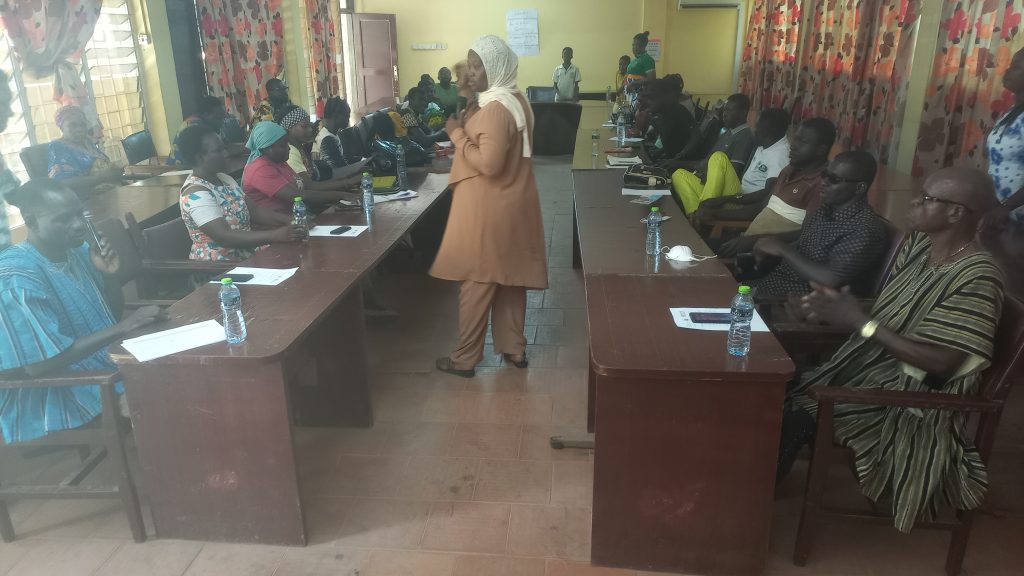By Anthony Adongo Apubeo
Bolgatanga, Nov 6, GNA – Persons with Disabilities (PWDs) in the Upper East Region have appealed to the Electoral Commission (EC) to ensure an inclusive electoral process in the 2024 presidential and parliamentary elections.
They said the general election was an opportunity for all Ghanaians to express their right and be part of the decision-making processes of the country and urged the relevant stakeholders to ensure that they were not denied or excluded in the election processes.
Mr Mark Akubire, the Upper East Regional President of the Federation of Disability, made the call on the side-lines of a forum in Bolgatanga, organised by Rural Initiatives for Self-Empowerment Ghana (RISE-Ghana) in partnership with STAR-Ghana Foundation for vulnerable and socially excluded groups.
The project, with funding support from the Foreign, Commonwealth and Development Office (FCDO) of the United Kingdom (UK), is dubbed “Democracy 360: Sustaining Inclusive Civic Engagement to Track Party Manifestoes Beyond Elections in Ghana”.
It seeks to guarantee sustainable access to inclusive and quality social services among excluded and under-represented groups such as persons with disabilities, women, youth, and ethnic minorities, among others, by using civic engagement and self-advocacy to hold political parties and governments accountable beyond elections, based on their party manifestoes and national policies.
The project also focused on leveraging and harnessing the latent political activism within the Zongo communities of the targeted districts and empowering the excluded groups to exercise their civic rights, influence political party manifestoes, and strengthen accountability.
It is being rolled out in the Bolgatanga Municipality, Nabdam and Bongo Districts.
The President explained that persons with disabilities often faced challenges during elections, particularly on election days, and it was imperative the EC prioritised their concerns, address them and ensure they were not excluded.

He mentioned that in previous elections some polling stations were mounted at places that were not easily accessible to persons with disabilities which made it difficult for them to exercise their franchise.
He said apart from ensuring that facilities and equipment used for the elections were disability friendly, the EC could make special arrangements for persons with disability not to join long queues to cast their votes on the Election Day.
“Voting as we know is done in secret and independently, but when it comes to visual impairment, it is the other way round, that is why we proposed the use of tactile jackets where the visually impaired person can vote by themselves without or with little help from someone”, he added.
Mr William Obeng Adarkwa, the Upper East Regional Director of the EC, who took the participants, comprising of PWDs, youth groups, first time voters and the Fulbe (Fulani) community through the election process, rules and regulations, assured that the Commission was not only committed to free, fair and transparent elections but was committed to an inclusive process.
He said the election was an important exercise in the country’s development agenda and noted that special arrangements would be made to assist vulnerable groups, especially PWDs and urged them to abide by the election rules to ensure free and fair elections.
Madam Jaw-haratu Amadu, the Head of Programmes, RISE-Ghana, said the main objective of the project was to contribute to ensuring that Ghana’s election was inclusive, and the leaders were accountable to the electorates to advance sustainable development.
She said apart the engagement seeking to empower the participants with electoral knowledge, the project was to also equip the participants with the insights into the manifestoes of the political parties for them to hold politicians accountable beyond the elections.
GNA